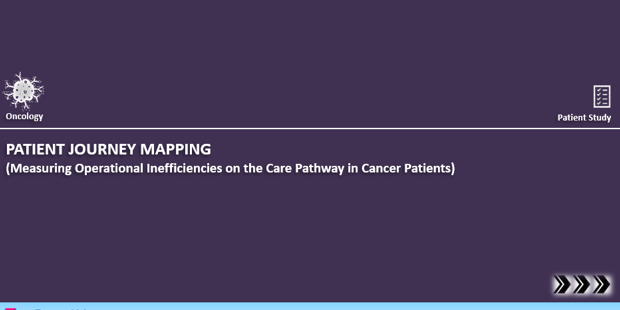Objective
One of the US-based, pioneer pharmaceutical company that specializes in the development and production of anti-cancer products, was looking for ways to optimize the care pathway to ensure timely and effective cancer treatment.
They have identified that there are operational inefficiencies on the care pathway that can lead to delayed treatment and higher costs, so they asked eQuantX to help them measure these inefficiencies in a product-agnostic way and estimate future changes.
Approach
Patient journey mapping process involved identifying typical paths that cancer patients take when seeking diagnosis and treatment for their cancer, what are the key factors involved, common challenges faced during the treatment journey, time taken from initial symptoms to diagnosis, and from diagnosis to treatment initiation and others related questions.
eQuantX utilized mixed-methods approach to measure operational inefficiencies on the care pathway;
- Conducted a comprehensive review of the literature on cancer care pathways and identified the key operational inefficiencies
- Conducted in-depth 60+ interviews with healthcare professionals, including oncologists, nurses, and administrators (in key markets- US, EU5, China and Japan), to gain insights into their experiences with the care pathway
- Using collected datasets, developed a process map of the care pathway and identified the key operational inefficiencies
Outcome
- Conducted a comprehensive review of the literature on cancer care pathways and identified the key operational inefficiencies
- Conducted in-depth 60+ interviews with healthcare professionals, including oncologists, nurses, and administrators (in key markets- US, EU5, China and Japan), to gain insights into their experiences with the care pathway
- Using collected datasets, developed a process map of the care pathway and identified the key operational inefficiencies








